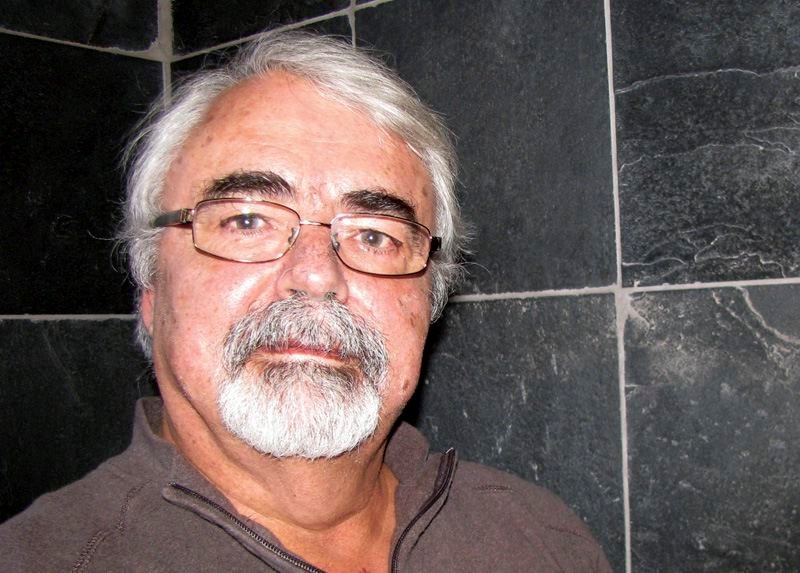Finally, there is Precosky.
The English department at the College of New Caledonia was once stacked with several acclaimed writers simultaneously. The leaders of the written words, there, were Barry McKinnon in the poetry field and John Harris in the prose field. But there was also Stan Chung (his latest book was released this fall), Eric Tomkins (a noted musician) and Don Precosky in the same cadre of professors and all were mutually supportive of each other's work.
None of that was done by Precosky, as far as the general public ever knew. His writing was prolific, but it was largely scholarly work, literary criticism, the kind of stuff that other writers appreciate but doesn't have a path to bookstore shelves.
Now retired, Precosky has broken his own pattern with Truckstop Nights, published by Repository Press. It's a creative-nonfiction novella that peers through the plate glass windows of a 1970s truckstop in Thunder Bay (even before it was named Thunder Bay). The language has elements of poetry, elements of stream-of-consciousness, elements of oral history set to page.
It was a somewhat progressive writing style, when Precosky penned it in the 1990s - so much so that no publisher of the day took him up on the offer.
"I had actually given up on it and had thrown out all my old copies of it, but John Harris still had his copies (the CNC colleagues frequently swapped manuscripts for some peer review) and he was actually the one who said 'we should work on this, let's take a look at publishing it,'" Precosky said.
Harris was the proprietor of his own printing label, Repository, so after a set of edits was done, the book was produced.
"I first met John at the CNC photocopier in 1980," Precosky said. "I saw this guy was photocopying material about the guy I did my master's thesis on (Montreal literary figure John Sutherland who died in 1956). That was a little surprising, Sutherland was not really well known, so I struck up a conversation and we are still talking 36 years later."
All that changed was Harris dedicated his photocopying skills to Precosky's vignette book, once they were both retired.
The story tells of a youth who is conscripted by his parents into helping them run their business, a truckstop on the Trans Canada Highway.
These were the days when the towns of Port Arthur and Fort William hadn't yet merged, and the gas station was on the outskirts of those. But it did well because, as the book reveals in the words of the founding trucker who sparked the idea for such a business, "this is the only place to piss between Sunshine and Nipigon."
There was grease on the fingers and on the spoons as the combination mechanical shop and cafe formed the setting for the main character's coming of age. It crackles with authenticity because it was Precosky's actual background.
"It's almost entirely based on true events, with some changes to names and some of the details just so no one can sue me and old friends won't be mad at me," Precosky said.
"That was a transitional time for the community," because they would soon become Thunder Bay and a lot of industries would eventually close down that had once been big parts of the local economy, "and it was when I went through my own transitions. I changed from working-class kid into a university student and that meant a move away, and in fact I never moved back. The course of my life changed forever."
Fresh out of university, he was hired at UBC in an academic underling position, then got a chance to really dig into the post-secondary academy system when a substantial position opened at CNC in 1980. He has been here ever since, retiring recently as the dean of the department.
"But I get a little bit tense when people tell me how well off I am because I was a dean at a college. I grew up in a very different life. Neither of my parents graduated high school. I changed my direction with choices I made in my education, but that person from before is still who I am."
He had many opportunities to leave Prince George, but never saw those alternatives as an upgrade over Prince George, he said. As a city, it was very much like Thunder Bay. It had a sense of familiarity to it, and it had all the lifestyle factors that he valued.
"I like it here," he said, cheerfully detailing the daily chores of retirement - all of them fun for him.
"It's actually a literary town. It's not what Prince George is known for, but when you look into it, a lot of very strong writing and very good writers have called Prince George home."



